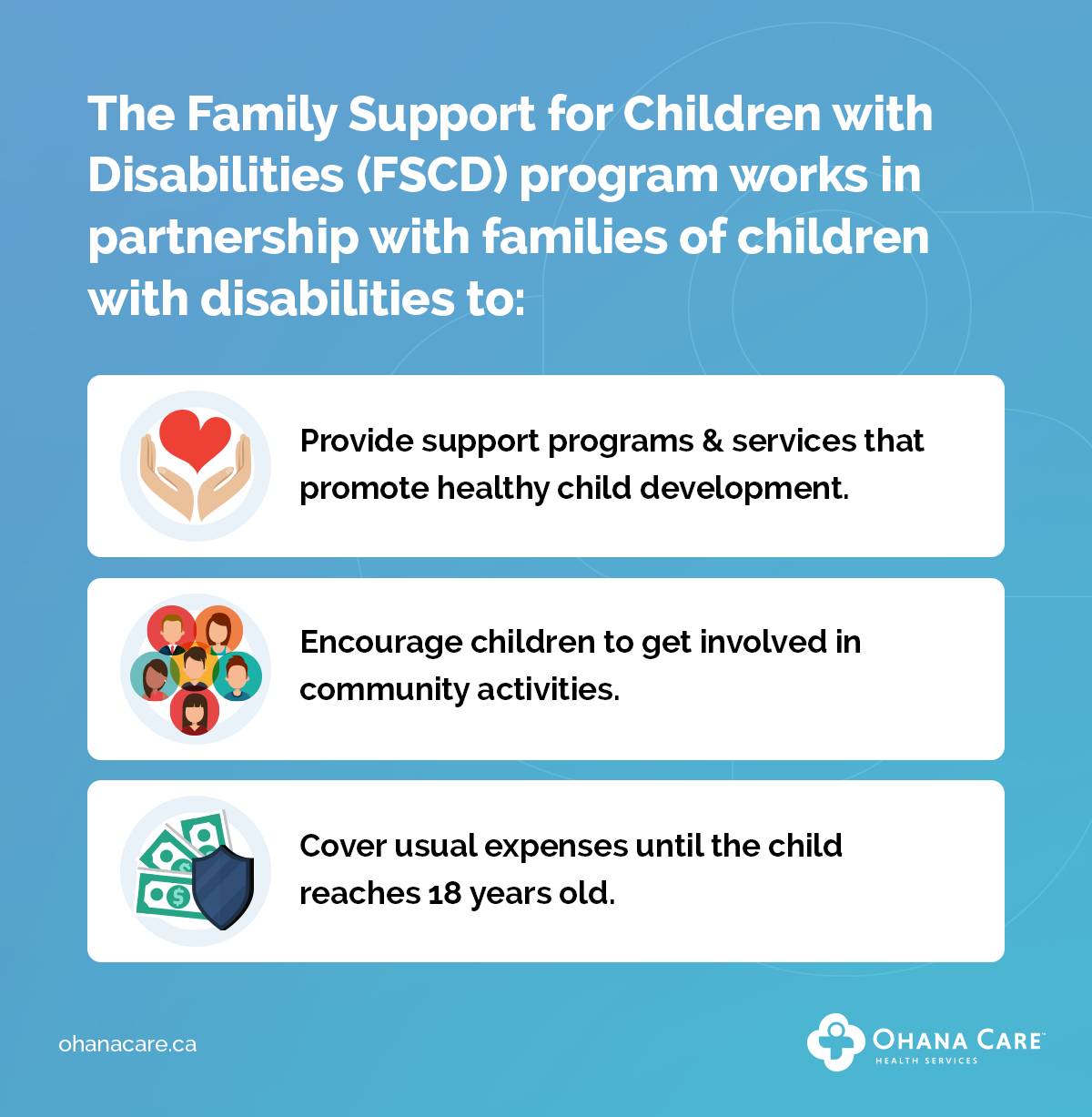Parents with a special needs child often experience unique challenges and hurdles that many other parents may not fully understand.
Things as seemingly simple as going to the mall or creating a bedtime routine can quickly become overwhelming.
After a long day, do you continue putting your family’s needs first, or do you take some time for yourself?
If you said the former, you’re not alone.
Because of the unique challenges that parents with special needs children face, it’s common to neglect self-care routines and personal well-being.
In this blog post, we’ve listed 11 self-care tips that can enhance your physical and emotional well-being so you have the energy and mental clarity to continue providing the best possible care to your children.
1. Establish a Support Network
Every parent’s journey is unique, yet sharing this path with another parent or primary caregiver who understands the ebbs and flows of caring for a child with special needs can be incredibly comforting.
The sense of connection and belonging from these relationships allows you to exchange practical tips, get emotional support, and feel less isolated.
In Canada, numerous support networks are available, connecting you with others nationwide.
Here are some social support groups for parents of children with disabilities:
In Calgary:
- Autism Calgary: Autistic Support Network (ASW)
- Calgary and Area Down Syndrome Support Group
- Calgary And Area Moms Autism Support Network
- YYC Support For Parents of Teens & Adults With Autism
In Edmonton:
- ESWIS – Parents of Children with Disabilities Support Group
- Parents of Children with Special Needs-Edmonton and area
- Connecting Parents Of Autistic Children Alberta
In Vancouver:
- Parenting Support Group: For Parents With Children Who Have Special Needs
- Vancouver Parents Transition Group
- Vancouver Parents of Special Needs Distributed Learners & Homeschoolers
2. Consider Professional Counseling
Working through your feelings and stressors with a professional who understands the unique challenges of raising a special needs child can be profoundly beneficial. Counselling can provide a safe space to process your emotions, learn effective coping strategies, and develop a resilient mindset.
Consider seeking out therapists who specialize in special needs family counselling, such as:
In Calgary:
In Edmonton:
In Vancouver:
Additionally, Psychology Today has a variety of additional professional counselling resources for those living anywhere across Canada.
3. Focus on Mindfulness and Meditation
Practicing mindfulness allows you to be fully present in the moment, helping to reduce anxiety about the future and alleviate regrets about the past.
On the other hand, meditation cultivates a state of inner calm and focus, enabling you to face daily challenges with a peaceful and resilient mindset.
The following are some books, apps, and other helpful resources that can help you practice self-care through mindfulness and/or meditation:
Books:
Mobile apps:
Podcasts:
- Mindfulness for Beginners
- Mindfulness in 8 Weeks
- Mindfulness Meditation Podcast
Reading or listening to these resources can offer emotional balance, helping to maintain stability and reduce emotional burnout. Additionally, regular practice can improve patience, lengthening your fuse and enhancing your ability to respond calmly in challenging situations.
4. Maintain Personal Hobbies
Rediscovering or maintaining hobbies that bring you joy can significantly improve your mental health and provide a necessary distraction from daily stressors. Hobbies offer an opportunity for creative expression, relaxation, and a break for a few hours from caregiving responsibilities.
If you don’t currently have a hobby, consider trying:
- Gardening
- Making scrapbooks
- Puzzles
- Knitting
- Blogging
- Yoga
- Photography
Even a few minutes each day spent on a hobby can bring joy, fulfillment, and a sense of accomplishment, helping recharge your spirit.
5. Consider Flexible Work Arrangements
According to MadeinCA, an estimated 40% of all Canadian jobs can be effectively completed from home.
If you’re balancing a full-time job alongside caregiving, consider discussing flexible work arrangements with your employer. Flexible work arrangements can include a hybrid work model, where you work from home two to three days a week.
Working from home a few days a week can significantly cut down on the time spent commuting, while also allowing you to manage smaller household chores, like laundry and dishes, during lunch breaks.
6. Focus on Physical Health Management
Maintaining physical health has significant impacts on your heart, body, and mind. According to the World Health Organization, physical health:
- Contributes to preventing/managing diseases such as cardiovascular diseases, cancer and diabetes
- Reduces symptoms of depression and anxiety
- Enhances thinking, learning, and judgement skills
- Improves overall well-being
Because of these facts, it’s crucial to take the time to ensure your physical health is in check, whether that means:
- Going on a short walk
- Doing yoga
- Going to the gym
- Participating in group training programs
- Going to the doctor and ensuring you are healthy
7. Start Journaling
Keeping a journal allows you to articulate thoughts, feelings, and daily experiences in a private, reflective manner.
Journaling can be a therapeutic outlet, helping you process emotions and document challenging and joyful moments.
If you struggle to free journal, try using a guided journal. Guided journals have prompts and small activities that can help streamline your thoughts, focus your reflections, and structure your writing, making the process less daunting and more engaging.
Here are some popular guided journals:
8. Get Government Support
Leverage government support such as Alberta’s Family Support for Children with Disabilities (FSCD) program, which assists families with costs associated with special needs.
Their support can alleviate some of the financial and emotional burdens and provide you with additional resources to care for your child effectively.

9. Prioritize Nutrition
Eating well is essential for your energy and health.
Quick, nutritious meals can boost your mood and stamina throughout the day. The following are a few recipes that can help you maintain a balanced diet amidst a busy schedule:
- Classic Sesame Noodles with Chicken
- Spinach & Scrambled Egg Pitas
- Breakfast Naan Pizza
- Spaghetti with Quick Meat Sauce
- Sheet-Pan Chicken Fajitas
10. Get Adequate Sleep
The Public Health Agency of Canada recommends that those aged 18-64 get 7-9 hours of sleep each night and those 65+ get 7-8 hours.
If you aren’t getting enough sleep, it’s time to start prioritizing your sleep schedule!
Quality sleep can:
- Improve your mood
- Enhance your immune system
- Increase your daily energy levels
When you get enough sleep, balancing caregiving and personal time is easier, helping you be your best self when you spend time with your children.
Get Additional Respite Support With the Help of Ohana Care

Given your daily responsibilities, we understand that finding the time for self-care might seem nearly impossible.
However, taking even a few moments for yourself can positively impact your well-being and ability to care for your child.
You don’t have to manage the balance of self-care and family responsibilities on your own.
At Ohana Care, we offer respite care services that allow you to take a break and prioritize self-care while knowing your child is in safe, professional hands. Our comprehensive services for special needs children include:
- In-Home After School Care
- School Accompaniment
- Daily Support
- Overnight Care
Our dedicated team is committed to providing the care and support you and your child deserve, helping make each day a little easier and much more fulfilling.
Contact us to learn more about how we provide temporary relief to help parents stay healthy and happy.





